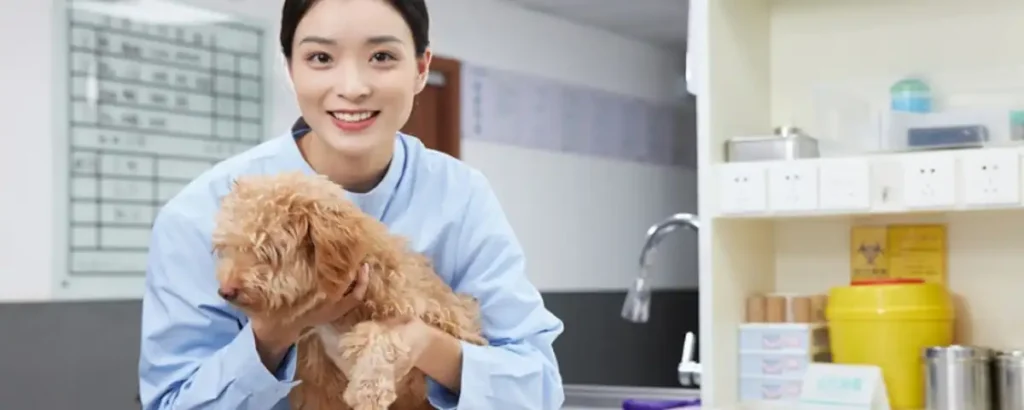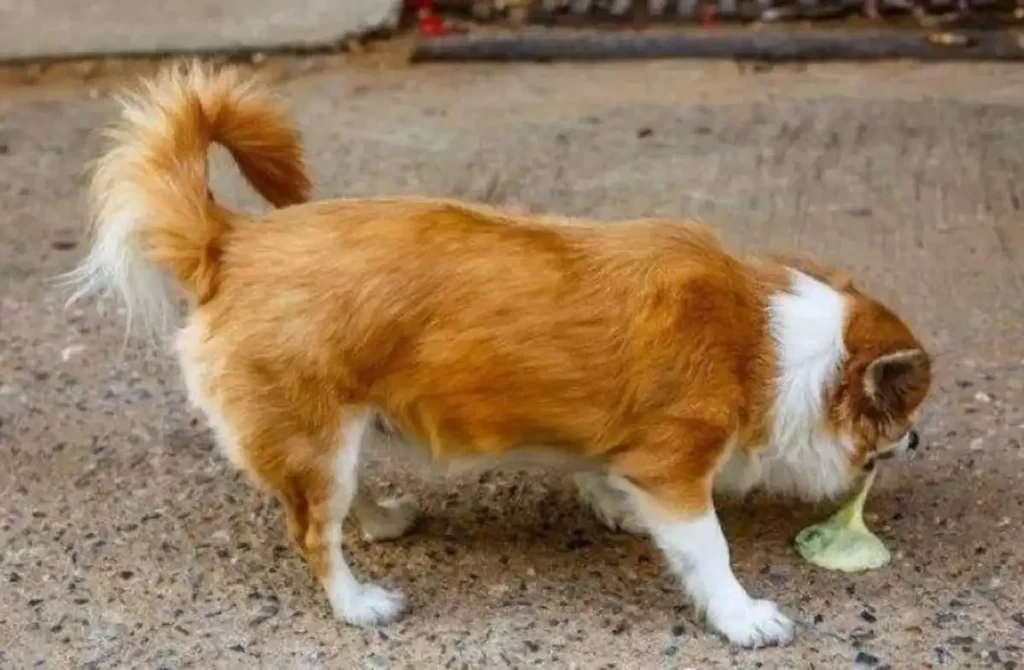As the saying goes, “Food is what people eat.” But if you want to enjoy colorful dishes, first we need to have a good stomach, so the hygienic quality of food is especially important. Not only us, the dog’s intestines and stomach is also very sensitive, once eaten not clean food or raw food, it is likely to lead to gastrointestinal discomfort or even gastroenteritis. If the dog is suffering from hemorrhagic gastroenteritis, it may also endanger the dog’s life.

I: Classification of gastroenteritis in dogs
The first primary gastroenteritis: due to improper feeding, uneven hunger and satiety, consumption of corrupt or indigestible food and misuse of irritating drugs. This kind of lesion is mostly seen in dogs that overeat animal offal, bone and meat.
Some dogs are more susceptible to gastroenteritis due to genetically weakened gastrointestinal function, the most notorious being: the Pomeranian.
The second type of secondary gastroenteritis is gastroenteritis that occurs during the course of certain infectious diseases (e.g., distemper, coronavirus) and parasites (e.g., hookworms, coccidiosis, whipworms, pouch worms, toxoplasmosis, etc.).
II: Symptoms of gastroenteritis in dogs
(1) Diarrhea is the main symptom of gastroenteritis and can be seen in the early stages of the disease. The feces are liquid and smelly, and in the later stages of gastroenteritis there will be mucus, blood and foam in the stool.
(2) If you listen closely to the dog’s abdomen, you can hear its intestinal peristalsis, which is very loud and has a thunderous sound.
(3) Then when the inflammation spreads to the anterior duodenum or stomach, the dog will vomit. In severe cases, the dog may experience bleeding in the small intestine, and the color of the dog’s stool may turn black-green or black.
(4) Of course, dogs with gastroenteritis may also have a low-grade fever, and if the gastroenteritis is caused by a bacterial infection, the fever may be as high as 39 degrees to nearly 40 degrees.
(5) If left unchecked, the dog may develop dehydration and acidosis. At this time the dog will be unable to stand up, loose fur, collapsed eye sockets, highly dehydrated, reduced urination, followed by coma and death.
III: how to treat gastroenteritis in dogs with medication

Whether it is acute or chronic gastritis, as long as it is not very serious, it will gradually recover within these 24 hours, and after recovery, remember not to give too much when eating. In the next 2 to 3 days gradually return to the normal amount of food, this is to avoid just recovered gastric function because of instantaneous eating too much and various problems, the biggest possibility is the recurrence of gastritis. If the symptoms are more varied and severe, and the dog clearly shows no spirit, send it to the hospital for examination.
For treatment, it is usually necessary to cut off water and food to avoid further irritation of the skin mucosa of the stomach or intestines, leading to further aggravation of the condition.
If it is due to primary gastroenteritis, antibacterial and anti-inflammatory drugs such as Flavopiridol and Gentamicin can be fed. Probiotics and gastrointestinal tablets can also be taken to restore gastrointestinal motility. If there is excess residue in the stomach and intestines, laxatives such as sodium sulfate and artificial salts can be used to eliminate toxins and clean out the stomach and intestines.
In the case of secondary gastroenteritis, the primary disease must also be treated. In addition to medication, you can also take measures in the following areas: place the dog in a place with a suitable temperature; after the vomiting is relieved, feed the appropriate sugar saline; apply warm compresses to the abdomen; and feed more non-stimulating food, such as liquid food. Food should be of high nutritional value, easy to digest, tasty, mainly used to stimulate the appetite, improve resistance.
In addition, the industry tends to start with the symptoms when treating dogs for gastroenteritis (the following treatment drugs are for reference, the use of drugs must be used in accordance with medical advice)

(1) Vomiting: Vomiting will aggravate the damage to the dog’s stomach and intestines, and will cause the dog to become dehydrated and cause a series of other complications.
If only vomiting food, then fasting and water can be; but if there is gastric juice (transparent green) or bile (opaque dark green) in the vomiting, fasting and water fasting, the general use of omeprazole to reduce gastric secretion, to avoid excessive gastric acid leading to flatulence and vomiting in dogs, if the dog’s breath is not acidic, not vomiting gastric juice can be discontinued.
(2) diarrhea: if diarrhea is not serious, every day, just pull the stool is not shaped, then reduce the amount of food, eat soft dog food can be; less serious dilute stool can be used to diarrhea, hyoscine and other drugs to try to treat the follow-up can also be used to balance the intestinal flora of the probiotic to achieve the purpose of stopping the diarrhea. If the diarrhea continues, consult a doctor immediately.
(3) Gastrointestinal mucosal injury. Whenever there is damage to the gastric or intestinal mucosa, it is necessary to take aluminum thioglycollate to repair, two tablets in the morning and two in the evening.
(4) Diarrhea due to parasites, confirmed by the pet hospital, can be treated with targeted deworming drugs can be used.
(5) Fever. If the dog has a fever, according to the fever temperature treatment: 39-40 degrees, generally do not need to deal with; if 40 degrees or more.
